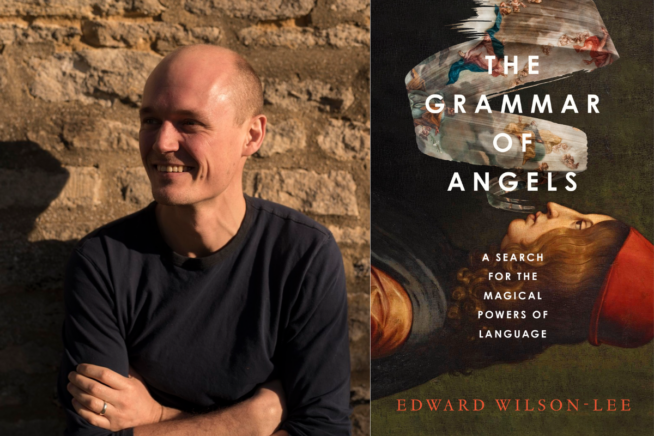
- Biography
The Grammar of Angels
Edward Wilson-Lee, The Grammar of Angels
The Grammar of Angels tells how Renaissance prodigy and polymath Giovanni Pico della Mirandola dedicated his short, brilliant life to a quest to find the sublime; to reconcile all existing thought into a philosophy that would settle the most important questions about human existence. This philosophy would, he believed, provide tools by which man could transcend his mortal limitations and join the ranks of angels.
Friday 20th June, 7.00pm
Venue: Chelmsford Cathedral, New Street, Chelmsford, CM1 1TY
Tickets: £15 / £12 concessions (Students, Under 27s and Unwaged)
Box Office: essexbookfestival.org.uk or Mercury Theatre 01206 573948
The Grammar of Angels by Edward Wilson-Lee

‘A deeply fascinating, sui generis book by a brilliant scholar-writer, which uses the life-story of a Renaissance prodigy to summon an angel-host of ideas, people and stories, all circling the question of language’s ability to transcend the mortal realm.’ – Robert McFarlane
The Grammar of Angels tells how Renaissance prodigy and polymath Giovanni Pico della Mirandola dedicated his short, brilliant life to a quest to find the sublime; to reconcile all existing thought into a philosophy that would settle the most important questions about human existence. This philosophy would, he believed, provide tools by which man could transcend his mortal limitations and join the ranks of angels.
In 1486, when he was just 23, he declared his intention to defend 900 theses on religion, philosophy, natural philosophy and magic for which he wrote a book that is deemed the ‘manifesto of the Renaissance’. It is also the first printed book to be universally banned by the Church.
Giovanni Pico della Mirandola died mysteriously aged only 31. His life is a testament to intellectual daring, to a human dignity founded in the willingness to think the unthinkable and to peer over the edge of the abyss in search of answers.
Edward Wilson-Lee

Photo of Edward Wilson-Lee credit Jeff Wilson
Edward Wilson-Lee is the prizewinning author of Shakespeare in Swahililand, The Catalogue of Shipwrecked Books, and The History of Water as well as many other publications for an academic audience. He grew up in east Africa with his wildlife conservationist parents and now teaches medieval and Renaissance literature at Sidney Sussex College, Cambridge.







